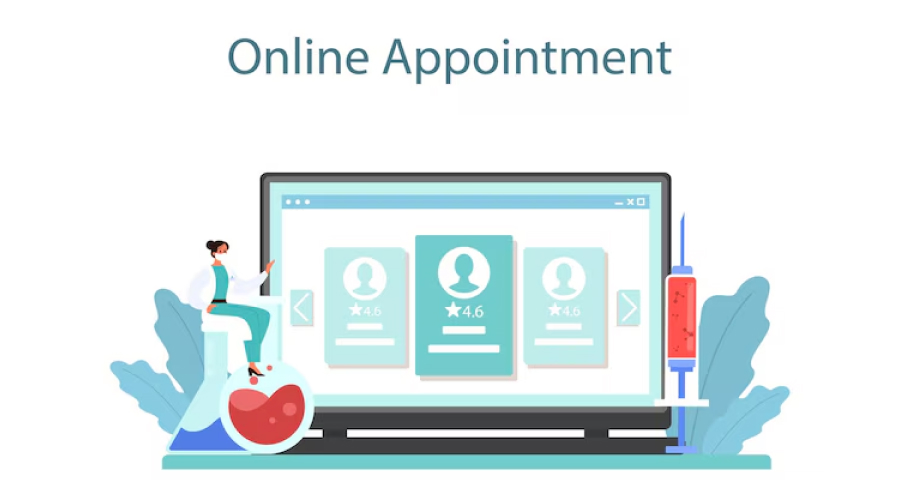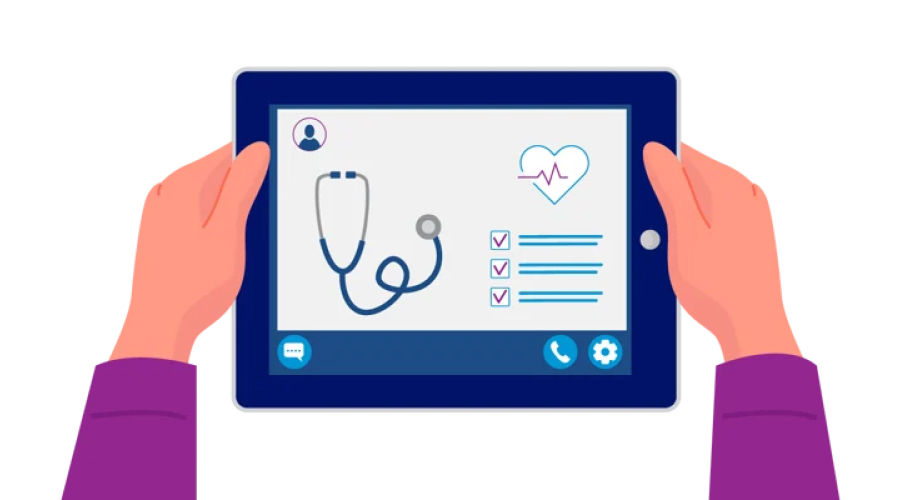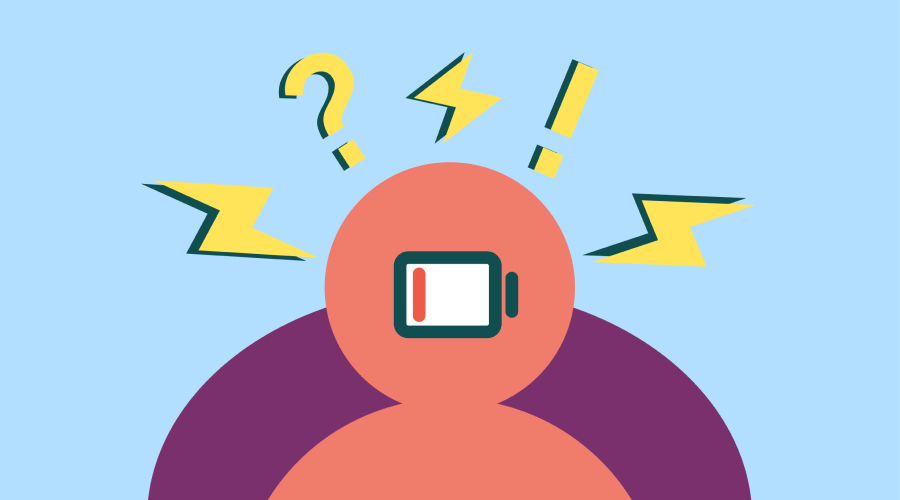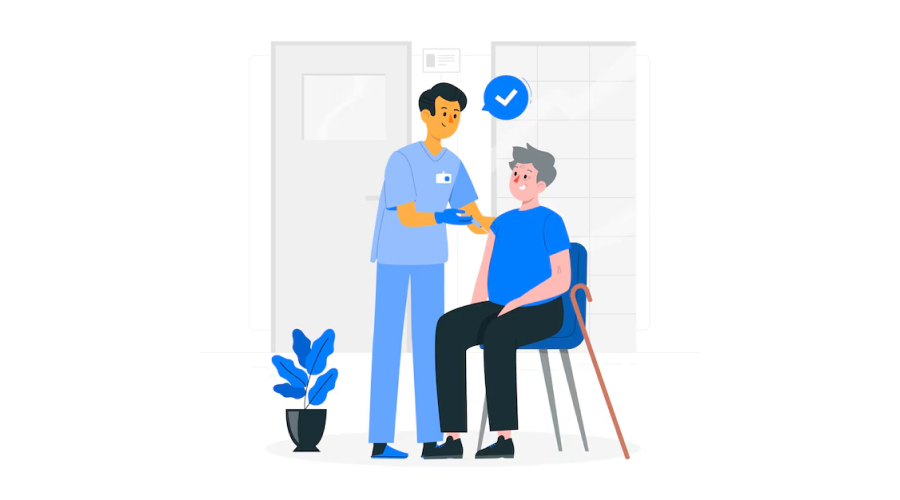
In an era when technology is reshaping every aspect of our lives, mental health is no exception. The increasing accessibility and affordability of smartphones and the internet have opened new possibilities for delivering mental health care. One such innovation is the rise of mental health virtual assistants (MHVAs).
MHVAs offer a promising solution to the challenges faced by many individuals seeking mental health support. This article will discuss the role of MHVAs in enhancing mental health care and explore how these virtual assistants can improve access to services, reduce stigma, and enhance the overall patient experience.
Roles and Responsibilities of Mental Health Virtual Assistant
1. Efficient Scheduling and Appointment Management

A mental health virtual assistant significantly improves the efficiency of scheduling and appointment management by automating routine tasks such as booking, rescheduling, and sending reminders. For mental health practices, time is of the essence, and missed or cancelled appointments can result in reduced patient care continuity.
By streamlining the scheduling process, MHVAs ensure patients can access timely care without the hassle of back-and-forth communication. Automated reminders reduce the likelihood of missed sessions, helping patients stay consistent with their treatment plans. Moreover, MHVAs can proactively handle cancellations, ensuring providers can optimize their schedules by filling in any gaps with other patients.
2. 24/7 Support and Accessibility

One of the most valuable contributions of an mental health virtual assistant is an ability to provide 24/7 support to patients. Mental health concerns don’t adhere to regular business hours, and many patients may experience anxiety, stress, or other issues outside of their scheduled therapy sessions.
A virtual assistant offers continuous support by addressing common queries, managing appointment requests, and offering assistance when needed, even during weekends or late at night. This level of accessibility can make a significant difference in how patients feel supported and cared for, especially during emotional distress.
3. Telehealth Support

As telehealth becomes increasingly integral to mental health services, mental health virtual assistants plays crucial role in ensuring the smooth delivery of virtual care. Mental health professionals often rely on digital platforms to conduct remote therapy sessions, and patients may struggle with the technical aspects of these tools.
An MHVA can provide guidance and troubleshooting support to ensure patients can connect seamlessly with their therapists. This is particularly important for older patients or those less familiar with technology, as it helps reduce any barriers to accessing care. By offering technical support, MHVAs ensure that therapy sessions proceed without unnecessary delays, making the virtual experience as effective as in-person consultations.
3. Patient Engagement and Monitoring

Mental health care relies heavily on continuous patient engagement, where mental health virtual assistants excel. They can be programmed to regularly check in with patients through automated messages, surveys, or reminders about treatment adherence, such as taking prescribed medication or completing therapy exercises. This ongoing interaction helps keep patients engaged with their care plans, making them more accountable for their mental health journey.
Additionally, these regular touchpoints provide mental health providers valuable insights into the patient’s progress, mood patterns, or potential red flags. By consistently monitoring patient well-being between therapy sessions, mental health virtual assistants enable early detection of emerging issues, allowing providers to intervene before problems escalate, leading to more effective and proactive care.
Also Read: Artificial Intelligence (AI) in Healthcare
4. Administrative Task Management

Mental health professionals often spend significant time on administrative tasks, such as filing paperwork, handling billing, and maintaining patient records. These duties, while essential, can detract from the time spent providing direct patient care. MHVAs offer an efficient solution by taking over many of these responsibilities, allowing clinicians to focus more on their therapeutic work.
By automating billing processes, managing patient records, and preparing documents, the mental health virtual assistant (MHVA) reduces the administrative burden that can lead to clinician burnout. This results in a more streamlined workflow where mental health providers can devote more attention to patient care, improving the quality of therapy sessions and ensuring that they are not overwhelmed by non-clinical duties.
5. Confidentiality and Security

In mental health care, maintaining patient confidentiality is not only a legal requirement but also a crucial factor in building trust. MHVAs have strict security protocols to ensure that all patient data is handled with the utmost confidentiality, adhering to privacy regulations such as the Health Insurance Portability and Accountability Act (HIPAA).
These virtual assistants manage sensitive information securely, ensuring that patient records, therapy notes, and communication are protected from breaches. Patients often share deeply personal information during their sessions, and the assurance that their data is being handled securely promotes trust in the care they receive.
6. Reduced Burnout for Professionals

Mental health professionals often face significant challenges in balancing patient care with administrative responsibilities, which can lead to burnout. This is especially prevalent in high-demand practices where clinicians manage patient records, billing, appointment scheduling, and other non-clinical tasks.
MHVAs can alleviate this burden by automating many of these time-consuming duties, freeing clinicians to concentrate on providing high-quality care to their patients. By reducing the workload, mental health virtual assistants contribute to improved job satisfaction and overall well-being for mental health providers. This, in turn, enhances patients’ quality of care, as clinicians can devote more time and mental energy to patient interactions rather than being overwhelmed by administrative tasks.
7. Tailored Patient Care

One of the most significant benefits of using an Mental Health Virtual Assistant (MHVA) is the ability to tailor patient care based on data-driven insights. MHVAs provide mental health professionals with valuable information that can be used to personalize treatment plans by continuously collecting and analyzing data on patient behavior, treatment adherence, and progress.
For example, an MHVA may track patient responses to therapy exercises, medication schedules, or mood logs and identify patterns that indicate the effectiveness of the current treatment. This information allows clinicians to make informed decisions about adjustments to the care plan, ensuring it remains responsive to the patient’s evolving needs.
8. Resource Provision

MHVAs are not only administrative tools but also serve as valuable patient resources. They can provide patients with educational materials, self-help resources, and coping strategies between therapy sessions. For instance, if a patient is dealing with anxiety, the virtual assistant can offer breathing exercises, mindfulness practices, or articles on managing stress.
This resource provision empowers patients to take an active role in their care, helping them develop coping skills and self-management techniques that they can apply daily. By providing relevant resources tailored to the patient’s specific needs or diagnoses, mental health virtual assistants extend the impact of therapy beyond the session, fostering a more holistic approach to mental health care.
9. Crisis Management Support

While mental health virtual assistants are not substitutes for human therapists, they are essential in early detection and crisis management. For example, if a patient expresses certain warning signs such as feeling suicidal or experiencing severe depression during a virtual check-in or via a pattern detected through data monitoring, the MHVA can immediately flag these concerns to the mental health professional. This enables quick intervention and potentially life-saving support.
In some cases, the MHVA can also direct patients to emergency hotlines or other crisis resources if an urgent response is needed. The ability to detect early warning signs of a mental health crisis allows providers to act swiftly, minimizing the risk of harm and ensuring that patients receive the appropriate level of care when they need it most.
Conclusion
As technology continues to advance, it is crucial to conduct further research and development to ensure that MHVAs are used ethically and effectively in the context of mental health care. By carefully considering the benefits of MHVAs, people can harness their potential to improve the lives of individuals struggling with mental health issues.






